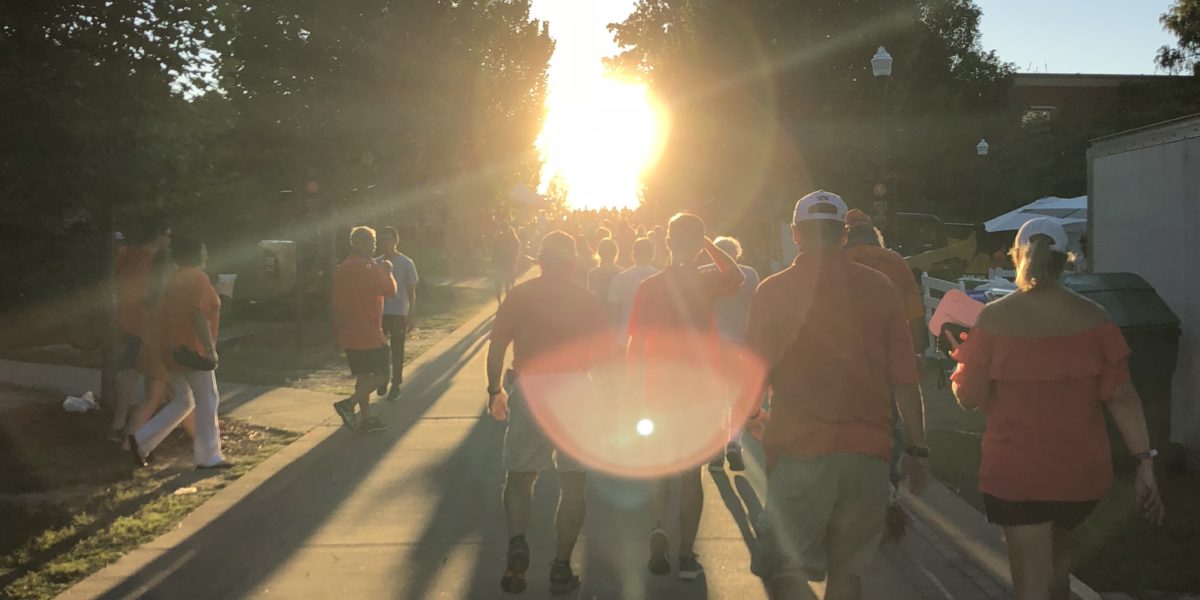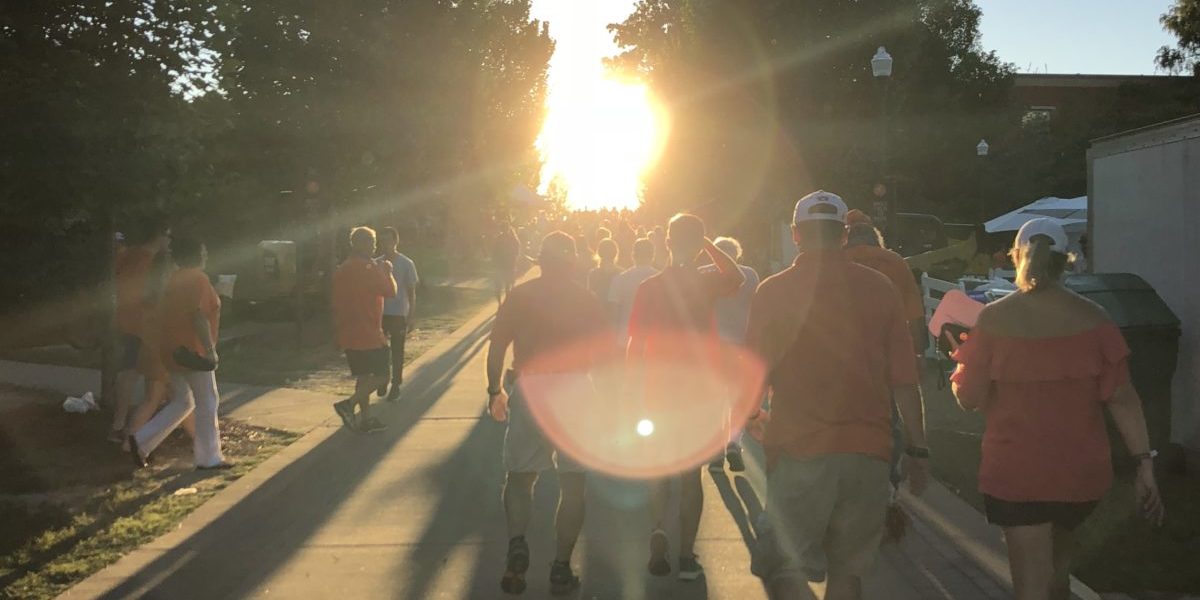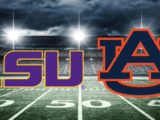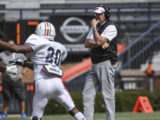
What’s more important to the SEC — the health & safety of its fans or money?
September 17, 2018
This past Saturday after LSU defeated Auburn, 22-21, fans are seen walking back to their vehicles while the scorching sun beats down/Skye Underwood
AUBURN, AL — I’m not sure who is the head of the common sense department for the Southeastern Conference, but I’d most certainly question their decision making ability when it comes to providing its fans with a safe and healthy environment.
As in not kicking off an early to mid-September game during the hottest part of the day for the sake of television.
It absolutely ruins the fan experience.
Useless stat of the day:
Saturday’s kickoff temp of 93 degrees was third warmest @AuburnFootball game since 1980 (based on avail info from stat books)
97 at TCU, 1980
95 vs Cal St Fullerton, 1990
93 vs LSU, 2018
93 vs Clemson, 2010— Kirk Sampson (@AuburnSID) September 16, 2018
And I’d be foolish not to acknowledge that money makes the world go ‘round, especially in the eyes of the SEC when it comes to television contracts.
You think the conference gives a shit about the fan experience when the networks are shoveling millions upon millions of dollars to the SEC?
If you said, “yes” then please allow me to sell you this beautiful piece of ocean front property in Arizona.
In fairness, the conference turns around and funnels that money back to its 14-member institutions. The most recent disbursement totaled $596.9 million in total revenue for the SEC’s fiscal year of 2016-17, which ended August 31, 2017. Each of the fourteen universities of the Southeastern Conference received a record payout of $40.9 million.
Now all of that money didn’t come from television contracts alone, but I assure you that the majority of it did.
So in other words, according to the networks, you’ll abide by their rules, SEC fans. Even if it means something as idiotic as playing one of your marquee matchups in early September in the hottest part of the day.
Fans be damned.
After watching the Auburn-Washington game from the comforts of the press box in Mercedes-Benz Stadium, I wanted to be amongst the fans for the Auburn-LSU game. After all, sitting behind cased-in glass in a human fish aquarium that’s as quiet as a library doesn’t exactly simulate the pageantry of college football.
All the good stuff happens outside of the press box and that’s where I wanted to be — witnessing the sights and sounds of college football; the blood, sweat and tears. And boy was there ever sweat. Lots and lots and lots of it.
You’ve likely never wondered what the temperature in hell feels like, but if it’s piqued your curiosity, you can be rest assured that the thought would never cross your mind again had you attended the Auburn-LSU game in Jordan-Hare Stadium for the 2:30 P.M. CST (2:39) kickoff, which was of course televised by CBS.
The way the SEC-CBS television contract works, the network typically gets the first choice on what game it wants to broadcast at 2:30 P.M. CST and the announcement of their selection usually comes a week prior to the actual game itself, which is plenty of time to know what the weather will be like on game day.
Besides, you don’t need a meteorologist to tell you that it’s hotter than a four-peckered billy goat in mid-September in the Deep South.
After what the fans experienced Saturday inside Jordan-Hare, I hope the league and the networks discuss moving September broadcasts to an evening time slot for the overall safety and well being of its fans.
And I realize a lot of schematics come into play for a decision like that to be made, but it is most definitely something that should at least be discussed.
I can also acknowlefdge that the players have been conditioned all summer in the heat, but I even felt sorry for them on this brutally hot Saturday. After all, they’re the ones wearing all the pads and helmets, “but for television purposes, let’s kick this baby off on one of the hottest days of the year at the hottest time during the day,” said no one ever that’s played the game or that’s had to sit in the stands to watch it.
I sat among both Auburn and LSU fans. Everyone around me was cordial and polite, but I couldn’t help but notice the many folks that continued to leave their seats in search of sanctuary from the blistering sun.
The Auburn football program is said to have one of the best home field advantages in college football, but that was clearly negated this past Saturday due to the unbearable heat.
I can’t even begin tell you the amount of people that I saw being treated by medical personnel due to a heat related illness.
Seriously, folks were spending their energy trying not to die of a heat stroke as opposed to cheering on their favorite team, LSU and Auburn fans alike.
When the first quarter ended, it was as if it were halftime and all the fans got up from their seats for a break, but the mass of humanity exiting the bleachers simply wanted to find relief from the sun, myself included.
I shit you not, when I finally made my way to the concessions after experiencing a human traffic jam (the alley way of the concourse was partially blocked because a woman was being assisted by medical personnel due to a possible heat stroke), I literally see hundreds of people sitting on their asses on the concrete floor of the concourse. Men, women, children – entire families just plopped down right on their butts while attempting to cool off in the shade underneath the stadium. I talked to a couple folks who said the heat was too brutal and that they were fine just watching the game on the tv’s inside the concourse.
So much for home field advantage.
Throughout the game, I of course returned to the concession stands again and again for hydration and with each visit, the number of people sitting on their fannies grew and grew.
In the 3rd quarter, while standing in line to purchase another bottle of water, I struck up a conversation with a couple LSU fans, who were super nice guys. One proclaimed, “the Auburn/LSU game should never be played during the day. The heat is ******* miserable. This game should always be played at night.”
I wholeheartedly agreed with him, but I can give you 596.9 million reasons why money is more important to the SEC than the health, safety, and overall game day experience of its fans.


